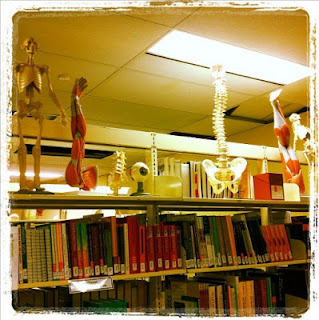@stokesrenee You can also search Google images by CC licence (advanced search screen, usage rights at bottom) #anz23mthingsSo I learned something new about Google. I'm always learning new things about Google, and I'm always damn impressed. I don't necessarily want to be though. I know Google is a company whose customers are advertisers (not searchers!) and whose business is the collection of data (big data!), supplied for free by searchers. That means we searchers are Google's product. Google is selling us to advertisers and making a giant pile of money out of us. But who can do without Google these days? They supply such a good search product, so I will continue to supply them with my data.
— mel (@melchivers) May 19, 2013
Librarians are not in competition with Google - we use Google as much if not more than the average person! There are some great points here from The Wikiman. I like how he says "all we can do is help people use it better". For universities, Google is a great complement to their subscribed databases and book holdings. BUT it is no substitute for them.
This interesting article, published by The Association of College and Research Libraries has some awesome ideas about running courses in how students (who we know use Google for research) can use Google more effectively. I'd love to teach one of these courses at my college as part of an information literacy program.
Google is also starting to get in to the MOOC market. A post on their research blog describes how they have created an open source learning platform called course builder that allows anyone with something to teach to create a course. They have developed their own course called Mapping with Google to promote the features of their course builder (and their new look Google Maps). I've signed up for the course (hm... overextending myself?) - here's a preview. It also fits in nicely with this week's 23 mobile things topic - maps.

















